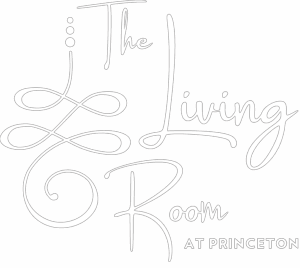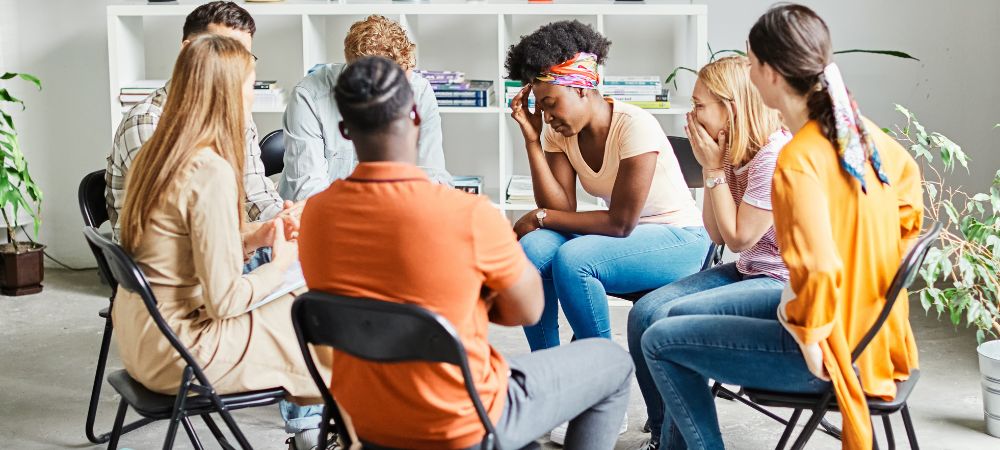Addiction is a complex, often deeply-rooted condition that affects every part of a person and their life. Because addiction affects every part of who a person is and how they function, it’s essential that people receive comprehensive treatment for the behavioral, emotional, and physical aspects of their substance use.
Detox and physical treatment are essential to support sobriety, but meaningful, lifelong recovery from addiction requires holistic care and ongoing support. It’s not enough to simply stop using addictive substances–you must also identify what led to your addiction and learn how to cope with challenges without relapsing.
Substance abuse counseling is a critical aspect of comprehensive substance abuse treatment. Working alongside a trained, compassionate therapist–both individually and in a group setting– can help you process complex emotions during addiction recovery and learn new skills that support lifelong sobriety.
This article will explore what to expect during substance abuse counseling in Princeton, New Jersey, and how to find the support you need throughout your recovery. Reach out to the teams of specialists at The Living Room now to learn more about our holistic treatment programs or for help at any stage of sobriety.
What Can I Expect During Substance Abuse Counseling?
Holistic substance abuse treatment programs in Princeton typically include counseling as a core aspect of their treatment plans. People in treatment can benefit from working with a therapist at every stage of their plan and after leaving rehab.
Substance abuse counseling provides a safe, reliable place for people to talk and think about their experiences and emotions more deeply. Each person has their own unique journey through addiction and recovery, so each counseling session and relationship will be different.
Typically, clients meet with their licensed therapist for an hour. During their time together, the therapist and client will work together to develop rapport, check in about thoughts and feelings, identify goals, and build the skills and routines to help them thrive in recovery.
Substance abuse counseling has several goals, including:
- Increasing client’s self-worth and self-esteem
- Developing new skills to reduce stress and manage challenges
- Identifying and addressing trauma
- Identifying relapse triggers and learning new, healthy ways to cope with them
Substance abuse counseling can also happen in a group setting, both during rehab and afterward. While each person follows a tailored treatment plan, most programs provide both individual and group therapy.
What Kinds of Treatment Programs in Princeton Offer Substance Abuse Counseling?
Every person has their own unique journey with substance abuse and addiction, and recovery is not a one-size-fits-all process. Addiction treatment is offered in many settings and several levels of care to meet people’s different needs.
Before beginning treatment, a medical or addiction specialist will evaluate your needs and recommend a level of care and course of treatment.
Substance abuse counseling is included in all levels of addiction treatment, including:
- Detox programs
- Residential or inpatient rehab
- Outpatient addiction treatment
- Intensive outpatient programs (IOPs)
- Partial hospitalization programs (PHPs)
- Aftercare programs
Substance abuse counseling is critical during each stage of recovery because it allows people to process emotions and experiences as they occur and develop new strategies as healing progresses.
There are many types of counseling offered in addiction treatment programs. Two of the most common approaches are:
- Cognitive-behavioral therapy (CBT) – CBT is a therapeutic approach that focuses on changing thought patterns and behaviors to address and alleviate emotional distress or mental health issues.
- Dialectical-behavioral therapy (DBT) – DBT is a type of cognitive-behavioral therapy that emphasizes mindfulness, acceptance, and the development of coping skills to manage intense emotions, particularly in individuals with borderline personality disorder. However, it can also be effective in treating addiction and other mental health conditions.
These therapeutic approaches help people identify destructive patterns and implement new coping strategies. Therapists may use a broad range of therapeutic techniques throughout their work with clients as their needs change.
Typically, people in treatment programs will attend therapy sessions as a core part of their treatment plan. Substance abuse counseling may also include screening, education, skills development and practice, and other activities that may support progress in recovery.
How to Find Substance Abuse Counseling in Princeton, NJ
There are several ways to find substance abuse counseling in Princeton, New Jersey. It’s crucial to find the level of care and type of treatment you need to help you meet your unique goals. Here are some steps you can take to find substance abuse counseling and treatment:
- Ask your doctor for a referral to an addiction treatment center or provider.
- Request referrals from local friends or family.
- Explore your insurance company’s website for in-network providers and programs.
- Contact the specialists at The Living Room for assistance.
At The Living Room, we know that finding compassionate, comprehensive treatment is essential. Our intake specialists will work to find you the substance abuse counseling or treatment services you need to reach your recovery goals and live the healthier, sober lifestyle you choose.
Find Substance Abuse Counseling in Princeton, New Jersey
If you or someone you love lives with addiction, the treatment you need is available at The Living Room. Participating in substance abuse counseling and treatment can help you live the life you choose instead of the one your addiction chooses for you.
Don’t wait another day for the care and support you deserve. Take the first step of your recovery journey by contacting us today.

